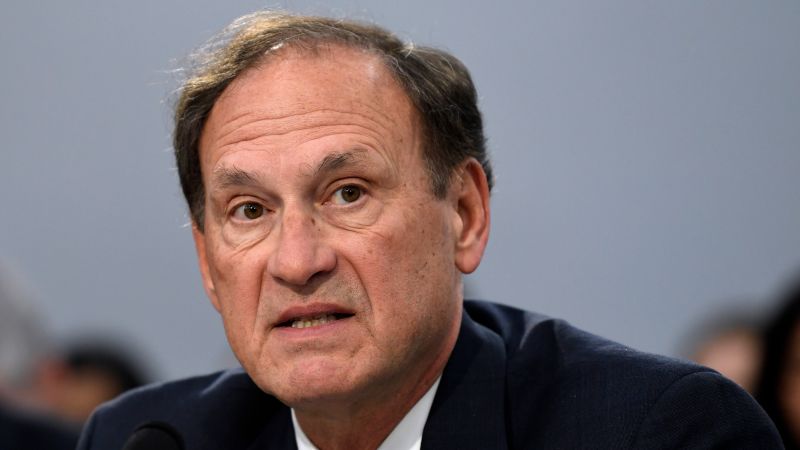Left-wing activist Lauren Windsor released secret recordings of Supreme Court Justice Samuel Alito and Chief Justice John Roberts discussing politically sensitive topics. In the recordings, Alito endorses the activist’s suggestion that people who believe in God need to fight to bring the country back to a place of “Godliness.” He acknowledges that fundamental differences prevent compromise between political divides. The activist misrepresented herself as a religious conservative in the recordings.
Windsor, a self-described documentary filmmaker, made the recordings during a dinner hosted by the Supreme Court Historical Society. Chief Justice Roberts can be heard on tape dismissing Windsor’s notion that the Supreme Court should guide the U.S. as a Christian nation. The recordings were released without the subjects’ knowledge, causing controversy and criticism. The Alitos have faced recent controversy following reports of provocative flags raised at their properties.
Martha-Ann Alito expressed frustration with a Washington Post reporter and criticized what she called “femnazis” who believe Justice Alito controls her. She also mentioned wanting to raise a Sacred Heart of Jesus flag in response to a Pride flag visible from their home. The recordings provide insight into the personal beliefs and conversations of the justices outside of their public personas. The secret recordings have sparked debate about privacy and ethics within the Supreme Court.
James Duff, the executive director of the Supreme Court Historical Society, condemned the recordings as inconsistent with the spirit of the event. Attendance rules prohibit discussions of current cases and a justice’s jurisprudence. The release of the recordings has raised concerns about transparency and privacy in the judiciary. The controversy surrounding the recordings adds to the growing list of ethics controversies that have plagued the Supreme Court in recent years.
The recordings captured personal conversations where justices shared their views on religion and political polarization. Despite being released without consent, they offer a rare glimpse into the private thoughts and beliefs of Supreme Court members. The controversy highlights the challenges of maintaining privacy in an increasingly transparent world. The implications of the recordings on public perception of the justices and the Supreme Court remain to be seen.


